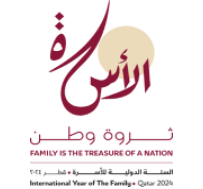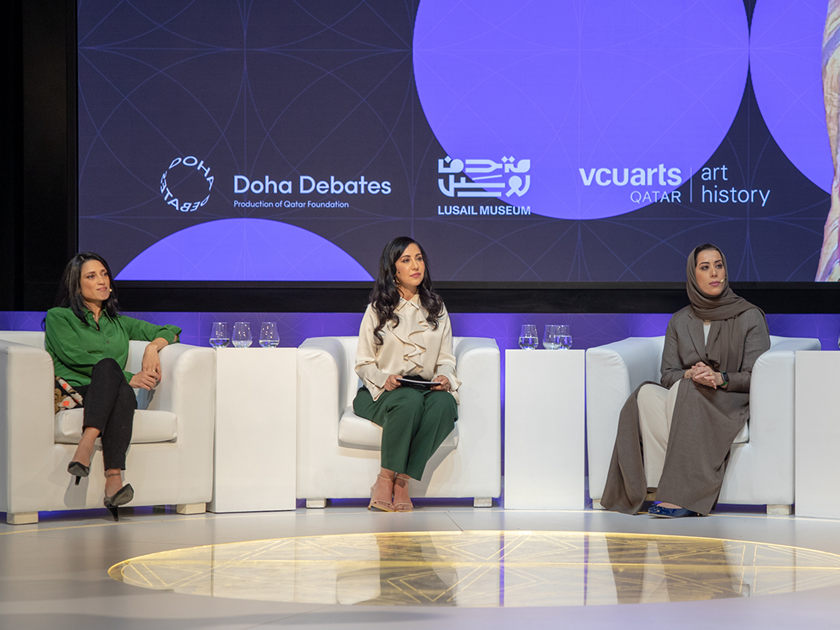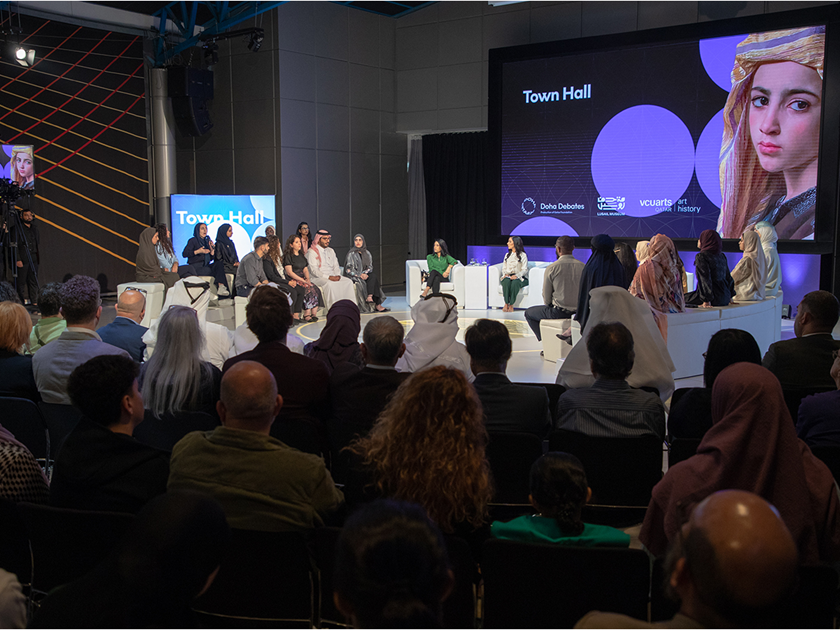Doha, November 21 (QNA) - With artistic portrayals of Arab and Asian identities through the eyes of the West often being inaccurate and leading to negative stereotyping, Qatar Foundation's Doha Debates has delved into how Orientalist art has shaped these perceptions and stereotypes over centuries.
The Doha Debates Town Hall, which took place at Qatar Foundation (QF) partner university Virginia Commonwealth University School of the Arts in Qatar and focused on 'Orientalism Demystified: Eastern Insights on Western Myths', explored whether museums should still present Orientalist works in their collections, given the often-negative connotations these artworks carry.
Orientalism began as an artistic, aesthetic movement that examined how the West viewed the Arab, North African and Asian worlds. In parts of the 18th and 19th Century, art portrayed people from the West as masculine, rational and superior, while those from the East were villainous, barbaric, and exotic, with women in particular depicted as helpless - negative stereotypes still reflective today in modern culture.
Journalist Fatima Bhutto explained at the Doha Debates event, Orientalism is not just an artistic movement; it can have real world implications on how people view each other and can reinforce harmful stereotypes.
Broadcast journalist and trustee of the National Portrait Gallery in London Inaya Folarin Iman said: "Often, the most thought provoking and compelling artworks are deeply offensive because they challenge us and ask us to question deeply held taboos." "Two very different and mutually exclusive opposing views can each have compelling and sincere justification, and as long as we are open to discussing them as citizens and human beings, it is OK for us to come to different conclusions," she added.
Writer and Deputy Director of curatorial affairs at the Lusail Museum Kholood Al Fahad aired her belief that art from previous centuries is not always created through first-hand knowledge. "Orientalist art is the intersection between fact and fiction, and imagination and reality," she said. "It gives a lot of freedom for interpretation, as artists dont have access to what they paint, and therefore can only imagine it, often meaning that the depiction is not accurate," she added.
A number of student and faculty participants had different views on the topic of discussion, which they presented to the audience. (QNA)



